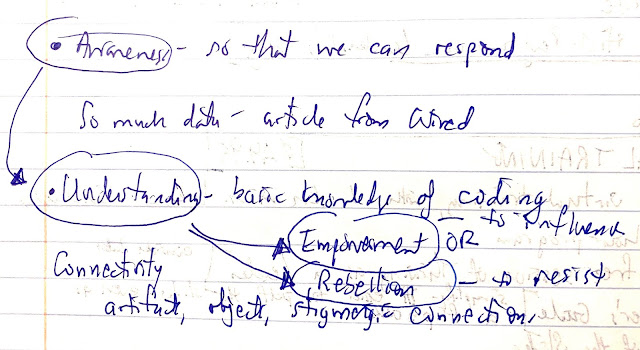After lurking casually for a few weeks (my training schedule always conflicted with the live discussions) I was finally able to attend one of the twice weekly zoom calls that Stephen Downes facilitates as part of Ethics, Analytics and the Duty of Care. It was time well-spent.
Since I've been "invisible" for most of the course, I mostly listened. There were numerous insights that sparked and endless trail of considerations.
One main point: our AI will be as ethical as we and society are (Downes). But what if the AI gets ahead of us? What if artificial intelligence moves from mimicking our own ethics (as varied as they are) into creating its own? As the AI evolves (as Sherida pointed out) who claims the discussion? Who manages the management? We may well find ourselves governed by an ethic with didn't choose.
I kept thinking of the article from Wired, The End of Theory: The Data Deluge Makes the Scientific Method Obsolete, which shows how ethics is influenced by the sheer speed and massive volume of disruption as organizations have begun to rely more on data, that data has taken over directing the course. Apparently, if the data set is large enough "we" feel comfortable simply abandoning the old caution that "correlation is not causality" with the new acceptance that, since it is so massive, "correlation is enough." That makes me uncomfortable, but then so does the power of so much data. AI can simply decide much faster than humans.
Some of the interesting questions raised during our discussion:
- Is there such a thing as "society" or does everything get done by individuals and groups? (Mark Wilson)
- Are we reaching a point (massive crowd share?) when "society" IS acting as ONE?
- How do we (and how should we) feel about Autonomous Armed Quadropeds? (we decided not to refer to these as Robot Dogs)
- Are non-players (those who don't care to influence the ethics of it all) excluded?
- Are ethics independent from consensus or even concordance?
- Does all of this massive shifting feed the desire for control, perhaps by one person or a powerful few?
- How will AI handle deviance? Will it tend to zero out deviance?


Comments
Post a Comment